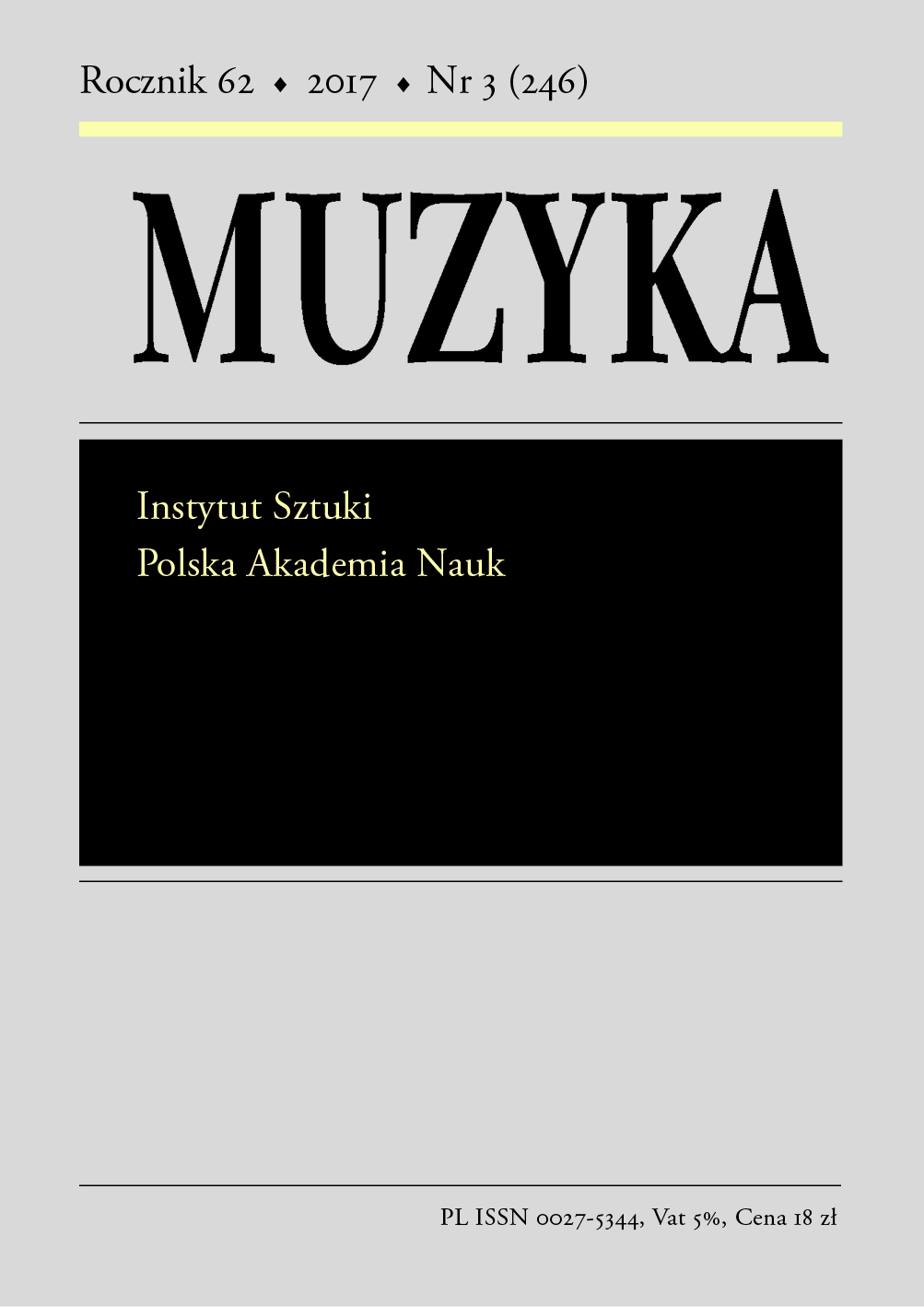Wzmianki o muzyce z czasów Stanisława Augusta
w gazetach pisanych ze zbiorów Biblioteki
im. Wróblewskich Litewskiej Akademii Nauk w Wilnie
Music-related documents from the period of Stanisław II Augustus’ reign in the handwritten press preserved in the collections of the Wróblewski Library of the Lithuanian Academy of Sciences
Author(s): Ryszard MączyńskiSubject(s): Music
Published by: Instytut Sztuki Polskiej Akademii Nauk
Summary/Abstract: The article presents the references to music life included in a collection of Polish handwritten press from the period of Stanisław II Augustus’ reign preserved in the collections of the Wróblewski Library of the Lithuanian Academy of Sciences (fond 17, nos 201, 214, 215, 216, 218). Although the collection spans the period from 1765 to 1794, the most complete material comes from the 1780s. References to music are rather infrequent and include only 10 mentions from three years 1780 (six annotations), 1782 (one), and 1784 (three). Therefore, there can be no doubt that for the authors of handwritten press music was not a subject of great interest. The analysis of the specific references to music and musicians soon reveals that the authors’ attention did not focus on the artistic aspects, but rather on matters pertaining to the financial side of performances, such as their cost or performers’ fees. The published news were usually about extraordinary events in the life of the eighteenthcentury Poland. For this reason, in most cases they do not reveal to scholars new facts that are not mentioned in other sources. Their value as sources from the period consists in presenting known events from a previously unknown perspective. The anonymous journalists of handwritten press directed their attention to the most spectacular events in Warsaw. In particular, to the concerts given by virtuoso violinists who had already gained renown in Europe: Italians Gaetan Pugnani and Giovanni Battista Viotti (1780), Ivan Mane Jarnović (1782) from Croatia and Friedrich Ludwig Benda (1784) from Germany. The short intervals between the performances enabled comparisons, so the journalists concluded that Viotti had surpassed his teacher Pugnani, while Jarnović was ‘by far superior to Pugnani’. It would be wrong, however, to expect to find here professional evaluation of their performance. Another spectacular event that occurred in Warsaw during that period and was mentioned in the handwritten press published in Vilnius was the production of Giovanni Paisiello’s oratory 'La Passione di Gesù Cristo', composed to a libretto by Pietro Metastasio, and performed by the theatre of the Vilnius castle on 2 and 4 April, 1784. The author of the news highlighted the performance of the Portuguese singer Luísa Rosa de Aguiar Todi, at that time considered one of the greatest vocal talents in Europe, who sang her part ‘to the great admiration and almost delight of the audience’. Also, the composer’s performance as the conductor was emphasized, as well as the contributions to the performance of ‘other famous Italian singers’, not mentioned by name. The other references to music in the handwritten press published in Vilnius concerned mostly Italian opera presented in Warsaw. However, they did not mention specific performances, but rather the complex relations between entertainers and audiences, which manifested itself in ticket prices. The third party in those negotiations were state officials: a marshal or a chancellor. As a consequence of the events described by the press, a regulation issued by Grand Marshal Lithuanian Władysław Gurowski in 1786 established the prices of theatre tickets at the level of 6 Polish zloty for a standing place on the ground floor and 7 Polish zloty for a place in a box. Quite often, however, the cost of producing a performance would prove too high, while the revenue from the sale of tickets would prove too low, which inevitably led the entertainers to bankruptcy.
Journal: Muzyka
- Issue Year: 62/2017
- Issue No: 3
- Page Range: 97-110
- Page Count: 14
- Language: Polish

